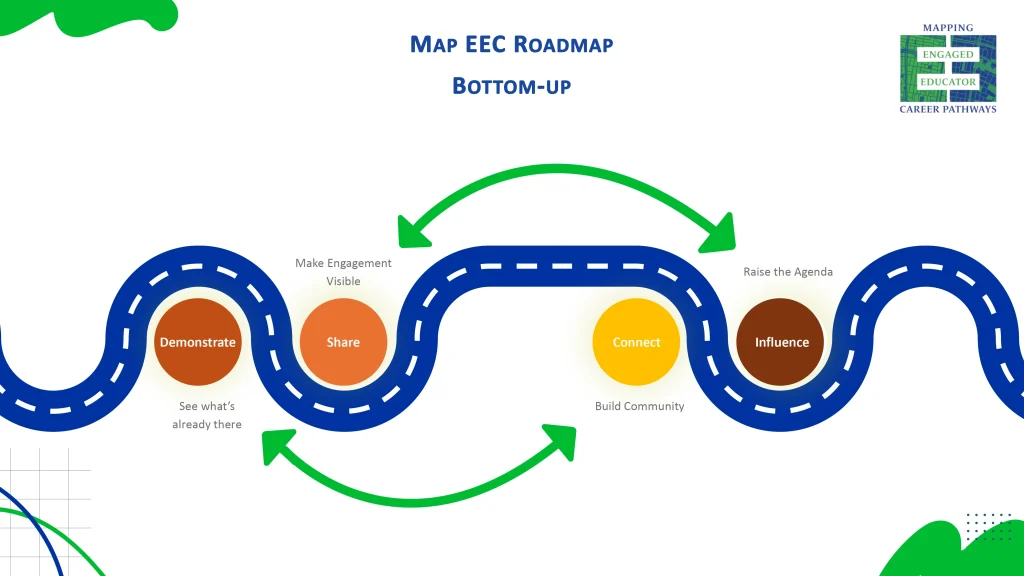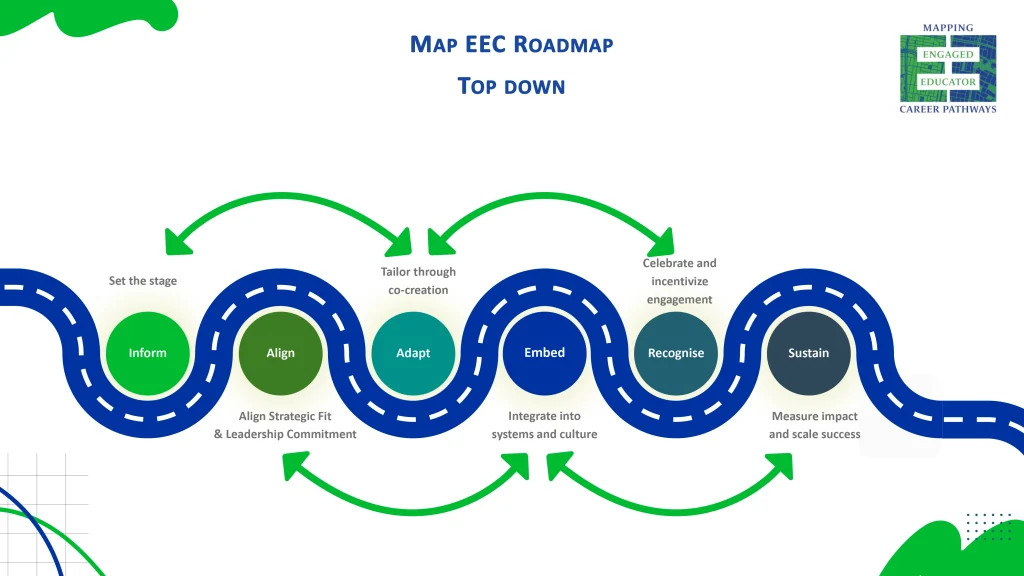As higher education evolves, universities are reimagining the role of educators. Not only do they have a role in traditional teaching, but they are integral pillars of the university community and essential links to the professional world. As industry changes around us, educators have a key role in guiding their universities and students to be at the forefront of the changing landscape.
To support this shift, the MAP EEC project has developed two Strategic Roadmaps that help universities embed engagement across all levels of their institutions.
1. The Bottom-Up Roadmap empowers educators to lead change from within. It supports them in mapping and sharing their engagement practices, building communities of practice, and advocating for recognition and cultural change across their institutions.

2. The Top-Down Roadmap provides leaders with a structured framework to integrate engagement into strategy, policy, and quality systems. It guides institutions through phases such as aligning engagement with strategic goals, embedding it into formal processes, and recognising educators who champion collaboration and societal impact.

These roadmaps combine individual initiative and institutional strategy, providing a flexible framework that universities can adapt to their context.
Turning Vision into Practice: The Support Mechanisms
To help institutions and educators put these roadmaps into action, the project provides a set of Support Mechanisms. These are practical tools, systems, and initiatives that make engagement tangible and sustainable.
These mechanisms include:
- Recognition and Reward Systems that celebrate and legitimise engagement as a valued academic contribution.
Examples → Engaged Educators Award and Engagement Recognition Framework
- Collaboration Platforms that connect educators, students, and external partners in solving real-world challenges together.
Examples → Co-Creation Spaces and Living Labs
- Digital and Organisational Tools that help track, support, and promote engagement activities across the institution.
Examples → Customer Relationship Management Systems and Collaborative Hubs
- Professional Development and Peer Support Structures which nurture communities of practice and continuous learning.
Examples → Engaged Educator Support Groups and regular Engaged Educator Newsletters
- Repositories and Showcases that make engaged teaching visible, highlight extra-curricular initiatives, and share inspiring examples from across the academic community.
Examples → Community Events and Discussions
Together, these mechanisms help transform engagement from an individual effort into a shared institutional practice that is recognised, supported, and sustained.
By applying the Strategic Roadmaps and associated Support Mechanisms, universities can build environments where educators and students thrive through collaboration, relevance, and societal impact.
👉 Learn more and explore the tools: mapeec.unibuc.ro/results-and-deliverables

